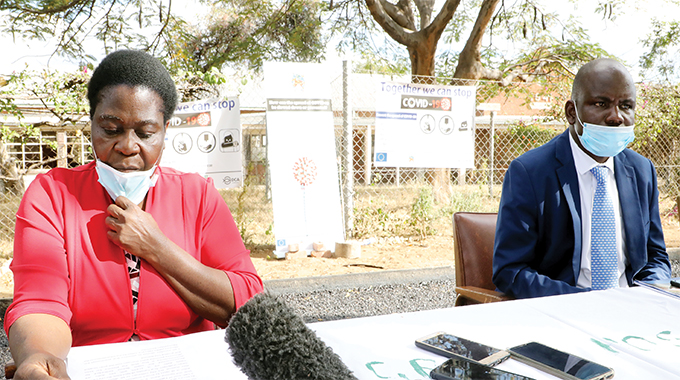ZNCC recommends partial lockdown

Oliver Kazunga, Senior Business Reporter
THE Zimbabwe National Chamber of Commerce (ZNCC) has called on Government to adopt a “partial” national lockdown to promote sustainable productivity in the economy while curbing the spread of Covid-19.
Due to the outbreak of the global pandemic, Zimbabwe embarked on a 21-day national lockdown on March 30 to April 19 and Government extended the lockdown period by a further 14 days to May 3.
The Government extended the national lockdown period after reviewing the situation obtaining in the country, around the region and worldwide.
In a statement, ZNCC said it recognises the role that business plays to achieve shared goal during the Covid-19 era, to maintain jobs and business continuity; to support health, social well-being and to ensure stability of the Zimbabwe populace.
“As a result, the chamber has been engaging membership and stakeholders in tracking and assessing the impact of Covid-19 on business,” it said.
ZNCC said Zimbabwe’s ability to withstand the impact of Covid-19 is a challenge given that the economy is characterised by escalation in prices and inflation, forex and cash shortages, contraction in economic activity across key sectors, huge wage contraction and declining aggregate demand.
“We are recommending for a partial lockdown, which will help in curbing the spread of the pandemic.
“The economy can’t afford to continue on total lockdown, after the 21-day total lockdown comes to an end, given the implications of total lockdown on the economy,” said ZNCC.
It said a partial lockdown will entail that there would be continued monitoring and that busines will be allowed to operate within adjusted working hours of between 5am and 7pm.
Movement of people under such an arrangement will be limited and this means that there would be no movement from one urban centre to another but the movement will be confined to one urban area.
“A partial lockdown is ideal because a premature cancellation of the restriction to movement from one city/town to another can undo the objective of curbing the spreading of the virus.
“Continued extension of lockdown will result in disruption in the supply chain, demand for goods will remain low, which will result in reduced production of goods,” said the business member organisation.
Furthermore, ZNCC noted that continued extension of total national lockdown will result in businesses scaling-back production and workforce becoming redundant as some companies would not be able to adapt.
The business lobby group said its recommendations were arrived at after a survey was conducted to capture the impact of the pandemic from various private sector players.
Business also indicated that the lockdown has resulted in supply chain disruption, labour supply disruption and uncertainty in business decision making. ZNCC also projects that the impact of Covid-19 will also weigh down heavily on this year’s Gross Domestic Product and fiscus projections as well as the current account.
Meanwhile, neighbouring South Africa with the highest number of confirmed cases of Covid-19 on the continent, has announced that it will start a phased easing of its strict lockdown measures on May 1.
That country’s President Cyril Ramaphosa last week said South Africa will begin a gradual reduction of restrictions, based on the number of cases that are discovered by widespread testing.
The reduction of restrictions will allow many industries and businesses to re-open under strict precautions, including having as many employees as possible work from home. — @okazunga









Comments